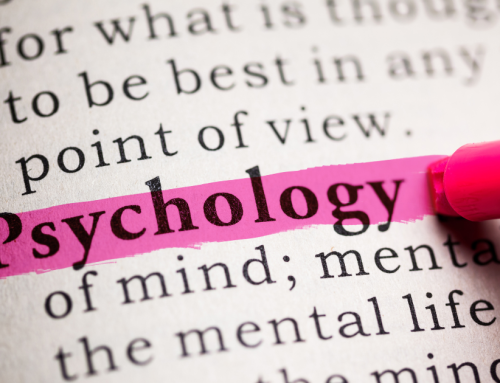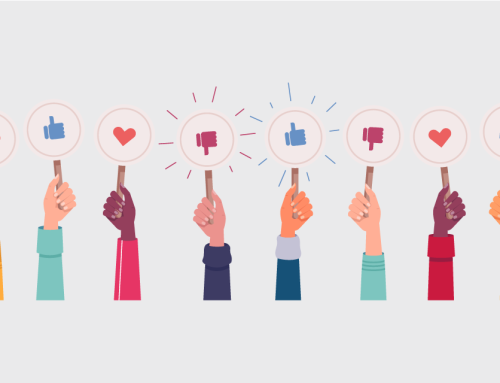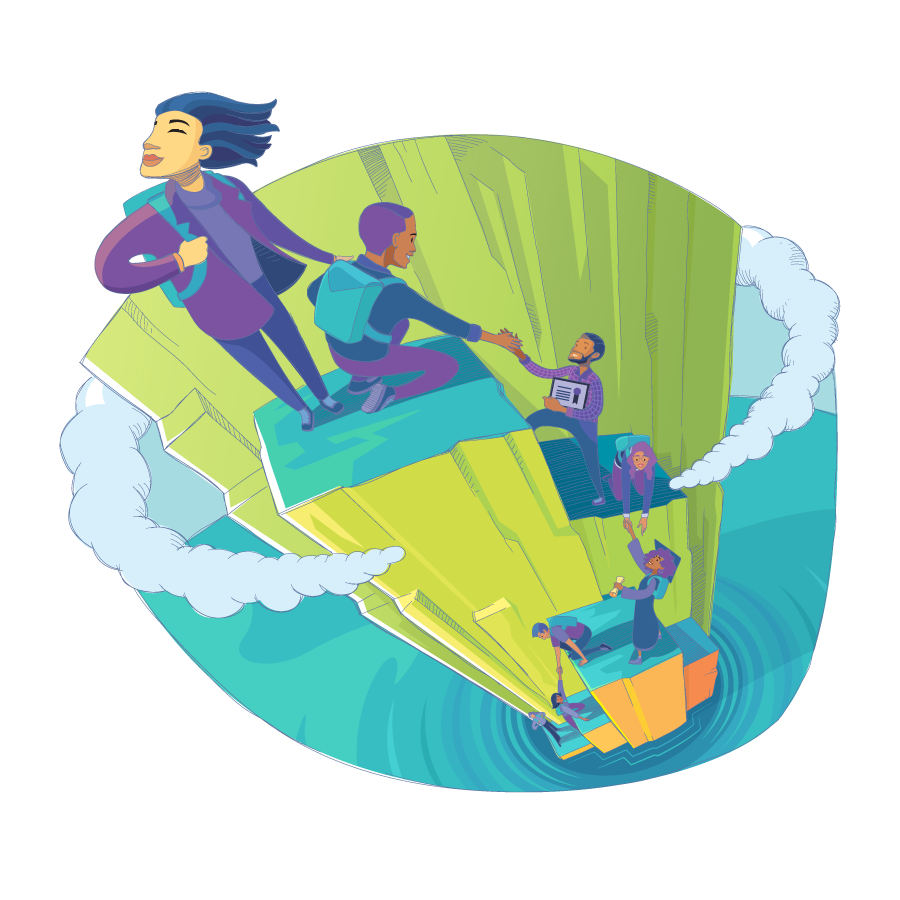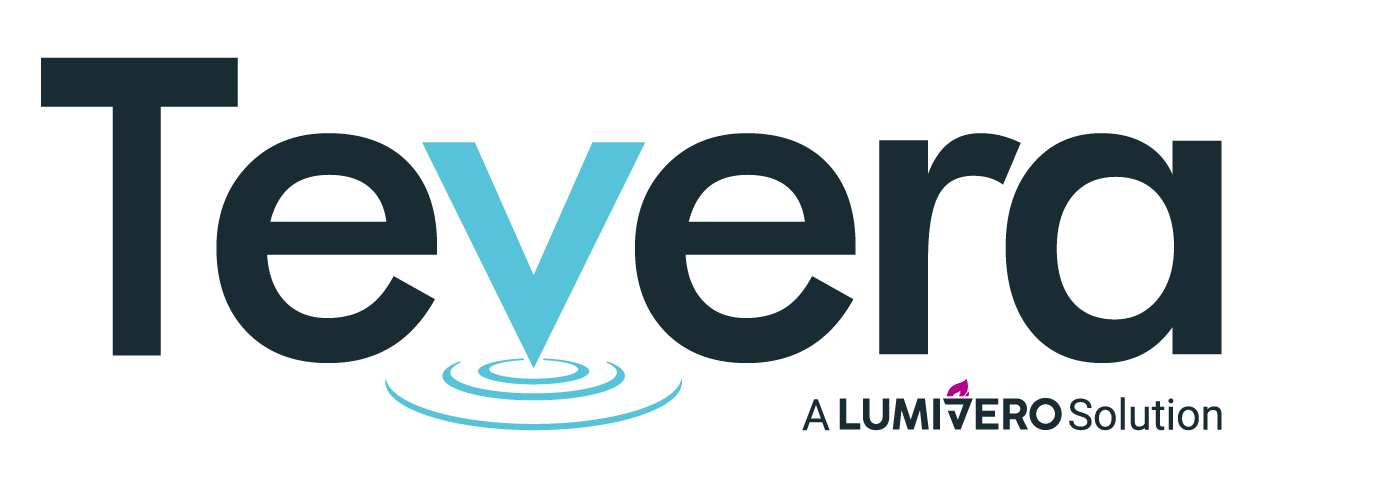How An HR Professional Found Her Calling in Counseling
People who are lucky enough to find their dream jobs often have unexpected journeys to get there. Dominique Oster, a Master in Counselor Education student at Palo Alto University, is one such person. Like most people in the helping professions, she always felt called to help others but how she’s put that into practice has evolved and led her to where she is today: a counselor education student nearing graduation.
Q: Thank you for joining us today. To begin, let’s start with an easy one: please introduce yourself.
A: Thanks for having me! I am Dominique, I am almost done with my master’s degree in counseling for marriage and family therapy.
Before I started counseling, I did human resources, which was great and I loved it. I did that for about seven years while my husband was in the military. Well, I started before we got married, and then we got married and we moved around a lot. And I found that it was just a super transferable and portable kind of job. HR is needed everywhere and never struggled to find a job doing that.
It’s one of those funny professions that you don’t know about growing up. No little kid grows up thinking, “I’m going to be an HR professional.”
I’d like to meet that kid!
A: Right? Yeah. I’m sure they are killing it right now. Yeah, I found myself in HR and I really liked it. I liked the structure of it. And especially the first few years that I did it, I liked the organization and the paperwork and knowing what the next step was going to be.
I then transitioned into employee relations, which is disciplinary actions and interpersonal issues. You work with people who aren’t getting along with their managers or their coworkers or their attendance is really bad. And you realize quickly that no one is only an employee. They’re people too. And 99% of the time, the issues that they’re having with their job have nothing to do with their job. You learn about people’s personal issues with finances or their marriage is in trouble or there’s issues with abuse or homelessness even.
It’s easy from the outside to think, “Oh, this person is making a good wage.” But you don’t really know what’s going on with them. And I felt like you can only do so much from a company standpoint. It doesn’t matter how much they like their job if they don’t have anywhere to go at night. And I felt like I was just kind of spinning my wheels. Like I can tell you I need you to be here on time, but if you don’t have a car, then how can I motivate you to do that? And that was what kind of pushed me into counseling.
I wanted to make a different kind of difference. Especially with FMLA and stuff, who are like, “I’m dying of cancer, but I need to keep my health insurance.” It’s like, “I can help you with that part, but there’s a deeper thing that you need help with.”
I found that I spent 99% of my days talking to people about their personal challenges and I really liked it. So, I didn’t know that I was going to fall into HR and I definitely didn’t know that I was going to fall into counseling. But it kind of just worked with my schedule, with my family. I think that was a big thing.
Other than that, I just really like Harry Potter and dogs and that’s about it. Super Millennial, I suppose.
Q: That actually answered my second question, which was why did you want to go into HR and then counseling? But is there anything else you want to add on that bit?
A: I fell into HR because I worked for a college doing career counseling and student services. So, finding people internships while they were in school and then placing them in positions before they graduated. I switched from that to HR and it was kind of a smooth transition from one thing to the other.
I’ve always liked helping people. I also really like to help people live more congruent lives with what they want to do. Even if it’s what you’re already doing, just finding more fulfillment in that. And if that means a better job in the same industry or a completely different job, helping you get from where you are now to where you want to go. So, I like that that’s kind of the whole point of HR and the whole point of counseling. It doesn’t necessarily have to be a huge life change to have you feel better about where you are.
Q: Did anything spark that when you were little or was it gradual?
A: I don’t know if it sparked when I was little, but I was going to go to medical school and then I found something else that I was good at. No, I think when I was little I had no idea that life was going to go the way that it is. I don’t know very many people who did.
Q: But it sounds like you really found where you were meant to be and that’s really cool.
A: Yeah, it only took 30 years. But that’s another thing I love about counseling. We actually do have quite a few older people in our programs. I don’t even think that it’s something that you have to figure out when you’re just 30. It’s okay to do your dream job and then realize that it’s not for you and then go do something else too. So, we see a lot of midlife transitions for sure.
Q: Was it hard to leave HR to go back to school for counseling?
Yeah. That was actually a really hard choice for me. Because I was pretty settled into HR and realized that I liked it and I have a lot of really amazing mentors. And what’s cool about HR is that it’s such a woman-dominated industry that pretty much all of my supervisors and VPs and mentors were just amazing women.
But I knew that I wanted to get a master’s degree. So, I did a master’s degree in HR. And I was about four or five months out from graduation and told my husband, “I think I want to be a therapist.” And he’s like, “What? Okay.” So, yeah. It was not planned but it worked out.
Q: How do you see your HR experience shaping your career goals?
A: HR was great because it helped me to understand different career expectations, requirements, and the environments that tend to go along with them. I learned how to see people in terms of their objective contributions but also the human part that exists in all of us beyond what we provide to a company. I realized that as much as I enjoyed helping people find employment and improve their performance in their roles, I was not in a position to attend to the deeper, more personal needs that we need to solve in order to be successful. I also realized that, more than anything, I want to work for myself and be my own boss.
Q: What advice do you have for other students?
A: The most important thing you can do is decide what kind of lifestyle you want to have and be patient. The most important things for me are flexibility, independence, and population-specific opportunities, so I’m working toward the credentials I need to fit that niche and am willing to bypass opportunities that won’t get me there. There is such a need for mental health support that the options really are endless once you have the required qualifications. If you want to work with children, or as a consultant, author, speaker, private practice therapist, practice owner, social worker, or whatever – there is a role for you.
Working is a necessary reality for the majority of us, so it is important to remember your end goal and not lose sight of the fact that you do not owe any employer the rest of your life! Be responsible. Be professional. Do your job the best you can, but always be working toward your ultimate goal, and don’t be afraid to branch out if what you’re currently doing isn’t getting you to where you want to be.

Meet Dominique Oster
Dominique Oster is currently completing her MA in Counseling and working as an MFT Trainee toward licensure. Her background and previous education is in Human Resources, and she spent her professional career helping candidates and employers find The Right Fit.
SOLUTIONS
RELATED POSTS
PRODUCT OVERVIEW
See how Tevera can elevate your program.
How An HR Professional Found Her Calling in Counseling
People who are lucky enough to find their dream jobs often have unexpected journeys to get there. Dominique Oster, a Master in Counselor Education student at Palo Alto University, is one such person. Like most people in the helping professions, she always felt called to help others but how she’s put that into practice has evolved and led her to where she is today: a counselor education student nearing graduation.
Q: Thank you for joining us today. To begin, let’s start with an easy one: please introduce yourself.
A: Thanks for having me! I am Dominique, I am almost done with my master’s degree in counseling for marriage and family therapy.
Before I started counseling, I did human resources, which was great and I loved it. I did that for about seven years while my husband was in the military. Well, I started before we got married, and then we got married and we moved around a lot. And I found that it was just a super transferable and portable kind of job. HR is needed everywhere and never struggled to find a job doing that.
It’s one of those funny professions that you don’t know about growing up. No little kid grows up thinking, “I’m going to be an HR professional.”
I’d like to meet that kid!
A: Right? Yeah. I’m sure they are killing it right now. Yeah, I found myself in HR and I really liked it. I liked the structure of it. And especially the first few years that I did it, I liked the organization and the paperwork and knowing what the next step was going to be.
I then transitioned into employee relations, which is disciplinary actions and interpersonal issues. You work with people who aren’t getting along with their managers or their coworkers or their attendance is really bad. And you realize quickly that no one is only an employee. They’re people too. And 99% of the time, the issues that they’re having with their job have nothing to do with their job. You learn about people’s personal issues with finances or their marriage is in trouble or there’s issues with abuse or homelessness even.
It’s easy from the outside to think, “Oh, this person is making a good wage.” But you don’t really know what’s going on with them. And I felt like you can only do so much from a company standpoint. It doesn’t matter how much they like their job if they don’t have anywhere to go at night. And I felt like I was just kind of spinning my wheels. Like I can tell you I need you to be here on time, but if you don’t have a car, then how can I motivate you to do that? And that was what kind of pushed me into counseling.
I wanted to make a different kind of difference. Especially with FMLA and stuff, who are like, “I’m dying of cancer, but I need to keep my health insurance.” It’s like, “I can help you with that part, but there’s a deeper thing that you need help with.”
I found that I spent 99% of my days talking to people about their personal challenges and I really liked it. So, I didn’t know that I was going to fall into HR and I definitely didn’t know that I was going to fall into counseling. But it kind of just worked with my schedule, with my family. I think that was a big thing.
Other than that, I just really like Harry Potter and dogs and that’s about it. Super Millennial, I suppose.
Q: That actually answered my second question, which was why did you want to go into HR and then counseling? But is there anything else you want to add on that bit?
A: I fell into HR because I worked for a college doing career counseling and student services. So, finding people internships while they were in school and then placing them in positions before they graduated. I switched from that to HR and it was kind of a smooth transition from one thing to the other.
I’ve always liked helping people. I also really like to help people live more congruent lives with what they want to do. Even if it’s what you’re already doing, just finding more fulfillment in that. And if that means a better job in the same industry or a completely different job, helping you get from where you are now to where you want to go. So, I like that that’s kind of the whole point of HR and the whole point of counseling. It doesn’t necessarily have to be a huge life change to have you feel better about where you are.
Q: Did anything spark that when you were little or was it gradual?
A: I don’t know if it sparked when I was little, but I was going to go to medical school and then I found something else that I was good at. No, I think when I was little I had no idea that life was going to go the way that it is. I don’t know very many people who did.
Q: But it sounds like you really found where you were meant to be and that’s really cool.
A: Yeah, it only took 30 years. But that’s another thing I love about counseling. We actually do have quite a few older people in our programs. I don’t even think that it’s something that you have to figure out when you’re just 30. It’s okay to do your dream job and then realize that it’s not for you and then go do something else too. So, we see a lot of midlife transitions for sure.
Q: Was it hard to leave HR to go back to school for counseling?
Yeah. That was actually a really hard choice for me. Because I was pretty settled into HR and realized that I liked it and I have a lot of really amazing mentors. And what’s cool about HR is that it’s such a woman-dominated industry that pretty much all of my supervisors and VPs and mentors were just amazing women.
But I knew that I wanted to get a master’s degree. So, I did a master’s degree in HR. And I was about four or five months out from graduation and told my husband, “I think I want to be a therapist.” And he’s like, “What? Okay.” So, yeah. It was not planned but it worked out.
Q: How do you see your HR experience shaping your career goals?
A: HR was great because it helped me to understand different career expectations, requirements, and the environments that tend to go along with them. I learned how to see people in terms of their objective contributions but also the human part that exists in all of us beyond what we provide to a company. I realized that as much as I enjoyed helping people find employment and improve their performance in their roles, I was not in a position to attend to the deeper, more personal needs that we need to solve in order to be successful. I also realized that, more than anything, I want to work for myself and be my own boss.
Q: What advice do you have for other students?
A: The most important thing you can do is decide what kind of lifestyle you want to have and be patient. The most important things for me are flexibility, independence, and population-specific opportunities, so I’m working toward the credentials I need to fit that niche and am willing to bypass opportunities that won’t get me there. There is such a need for mental health support that the options really are endless once you have the required qualifications. If you want to work with children, or as a consultant, author, speaker, private practice therapist, practice owner, social worker, or whatever – there is a role for you.
Working is a necessary reality for the majority of us, so it is important to remember your end goal and not lose sight of the fact that you do not owe any employer the rest of your life! Be responsible. Be professional. Do your job the best you can, but always be working toward your ultimate goal, and don’t be afraid to branch out if what you’re currently doing isn’t getting you to where you want to be.

Meet Dominique Oster
Dominique Oster is currently completing her MA in Counseling and working as an MFT Trainee toward licensure. Her background and previous education is in Human Resources, and she spent her professional career helping candidates and employers find The Right Fit.
How An HR Professional Found Her Calling in Counseling
People who are lucky enough to find their dream jobs often have unexpected journeys to get there. Dominique Oster, a Master in Counselor Education student at Palo Alto University, is one such person. Like most people in the helping professions, she always felt called to help others but how she’s put that into practice has evolved and led her to where she is today: a counselor education student nearing graduation.
Q: Thank you for joining us today. To begin, let’s start with an easy one: please introduce yourself.
A: Thanks for having me! I am Dominique, I am almost done with my master’s degree in counseling for marriage and family therapy.
Before I started counseling, I did human resources, which was great and I loved it. I did that for about seven years while my husband was in the military. Well, I started before we got married, and then we got married and we moved around a lot. And I found that it was just a super transferable and portable kind of job. HR is needed everywhere and never struggled to find a job doing that.
It’s one of those funny professions that you don’t know about growing up. No little kid grows up thinking, “I’m going to be an HR professional.”
I’d like to meet that kid!
A: Right? Yeah. I’m sure they are killing it right now. Yeah, I found myself in HR and I really liked it. I liked the structure of it. And especially the first few years that I did it, I liked the organization and the paperwork and knowing what the next step was going to be.
I then transitioned into employee relations, which is disciplinary actions and interpersonal issues. You work with people who aren’t getting along with their managers or their coworkers or their attendance is really bad. And you realize quickly that no one is only an employee. They’re people too. And 99% of the time, the issues that they’re having with their job have nothing to do with their job. You learn about people’s personal issues with finances or their marriage is in trouble or there’s issues with abuse or homelessness even.
It’s easy from the outside to think, “Oh, this person is making a good wage.” But you don’t really know what’s going on with them. And I felt like you can only do so much from a company standpoint. It doesn’t matter how much they like their job if they don’t have anywhere to go at night. And I felt like I was just kind of spinning my wheels. Like I can tell you I need you to be here on time, but if you don’t have a car, then how can I motivate you to do that? And that was what kind of pushed me into counseling.
I wanted to make a different kind of difference. Especially with FMLA and stuff, who are like, “I’m dying of cancer, but I need to keep my health insurance.” It’s like, “I can help you with that part, but there’s a deeper thing that you need help with.”
I found that I spent 99% of my days talking to people about their personal challenges and I really liked it. So, I didn’t know that I was going to fall into HR and I definitely didn’t know that I was going to fall into counseling. But it kind of just worked with my schedule, with my family. I think that was a big thing.
Other than that, I just really like Harry Potter and dogs and that’s about it. Super Millennial, I suppose.
Q: That actually answered my second question, which was why did you want to go into HR and then counseling? But is there anything else you want to add on that bit?
A: I fell into HR because I worked for a college doing career counseling and student services. So, finding people internships while they were in school and then placing them in positions before they graduated. I switched from that to HR and it was kind of a smooth transition from one thing to the other.
I’ve always liked helping people. I also really like to help people live more congruent lives with what they want to do. Even if it’s what you’re already doing, just finding more fulfillment in that. And if that means a better job in the same industry or a completely different job, helping you get from where you are now to where you want to go. So, I like that that’s kind of the whole point of HR and the whole point of counseling. It doesn’t necessarily have to be a huge life change to have you feel better about where you are.
Q: Did anything spark that when you were little or was it gradual?
A: I don’t know if it sparked when I was little, but I was going to go to medical school and then I found something else that I was good at. No, I think when I was little I had no idea that life was going to go the way that it is. I don’t know very many people who did.
Q: But it sounds like you really found where you were meant to be and that’s really cool.
A: Yeah, it only took 30 years. But that’s another thing I love about counseling. We actually do have quite a few older people in our programs. I don’t even think that it’s something that you have to figure out when you’re just 30. It’s okay to do your dream job and then realize that it’s not for you and then go do something else too. So, we see a lot of midlife transitions for sure.
Q: Was it hard to leave HR to go back to school for counseling?
Yeah. That was actually a really hard choice for me. Because I was pretty settled into HR and realized that I liked it and I have a lot of really amazing mentors. And what’s cool about HR is that it’s such a woman-dominated industry that pretty much all of my supervisors and VPs and mentors were just amazing women.
But I knew that I wanted to get a master’s degree. So, I did a master’s degree in HR. And I was about four or five months out from graduation and told my husband, “I think I want to be a therapist.” And he’s like, “What? Okay.” So, yeah. It was not planned but it worked out.
Q: How do you see your HR experience shaping your career goals?
A: HR was great because it helped me to understand different career expectations, requirements, and the environments that tend to go along with them. I learned how to see people in terms of their objective contributions but also the human part that exists in all of us beyond what we provide to a company. I realized that as much as I enjoyed helping people find employment and improve their performance in their roles, I was not in a position to attend to the deeper, more personal needs that we need to solve in order to be successful. I also realized that, more than anything, I want to work for myself and be my own boss.
Q: What advice do you have for other students?
A: The most important thing you can do is decide what kind of lifestyle you want to have and be patient. The most important things for me are flexibility, independence, and population-specific opportunities, so I’m working toward the credentials I need to fit that niche and am willing to bypass opportunities that won’t get me there. There is such a need for mental health support that the options really are endless once you have the required qualifications. If you want to work with children, or as a consultant, author, speaker, private practice therapist, practice owner, social worker, or whatever – there is a role for you.
Working is a necessary reality for the majority of us, so it is important to remember your end goal and not lose sight of the fact that you do not owe any employer the rest of your life! Be responsible. Be professional. Do your job the best you can, but always be working toward your ultimate goal, and don’t be afraid to branch out if what you’re currently doing isn’t getting you to where you want to be.

Meet Dominique Oster
Dominique Oster is currently completing her MA in Counseling and working as an MFT Trainee toward licensure. Her background and previous education is in Human Resources, and she spent her professional career helping candidates and employers find The Right Fit.


















